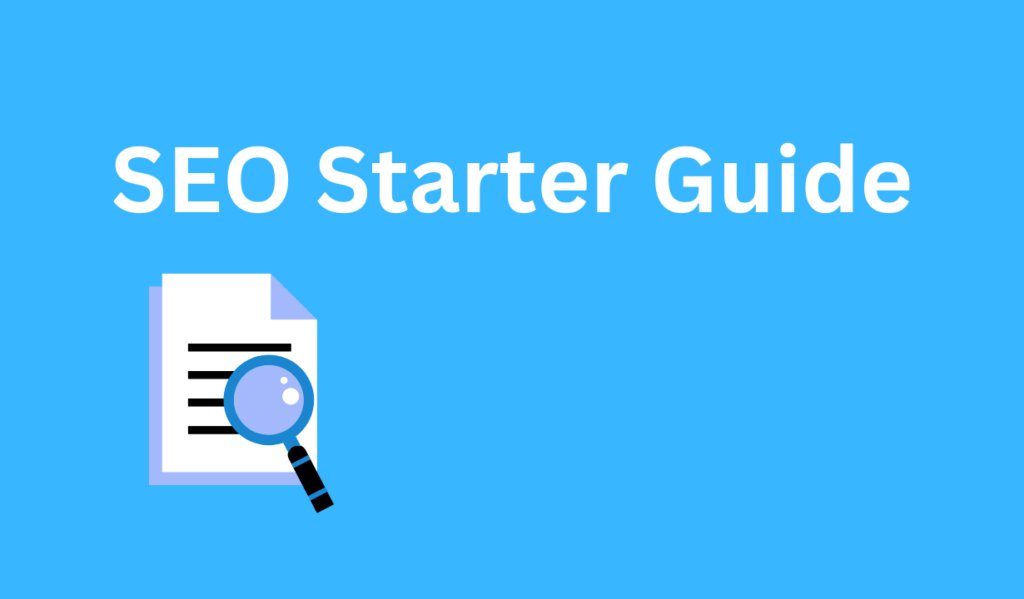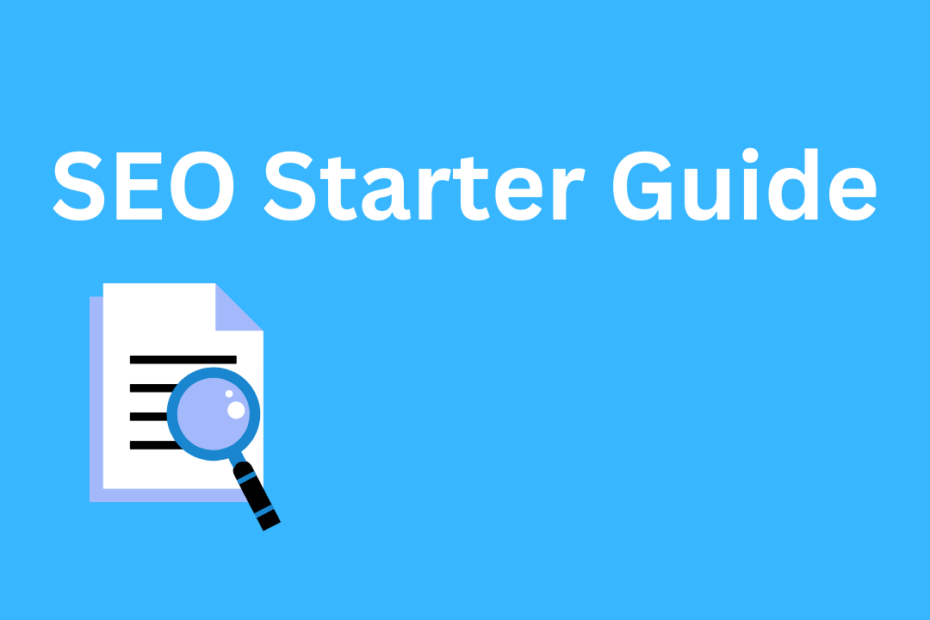Welcome to the ultimate Complete SEO Starter Guide designed specifically for those who are new to SEO and wish to understand the intricacies of search engine optimization. Whether you are a business owner, a marketer, or someone interested in enhancing their online presence, this guide provides fundamental insights and practical tips to help you navigate the world of SEO. By the end of this article, you will gain a comprehensive understanding of how SEO works and how you can implement effective strategies to improve your website’s visibility in search engine results.

What is SEO and Why is It Important for Search Engine Optimization?
Understanding the Basics of SEO
Search Engine Optimization, commonly referred to as SEO, is the process of optimizing your website to improve its visibility in search engine results pages (SERPs). SEO encompasses a variety of techniques and strategies aimed at helping search engines like Google understand your content better. At its core, SEO is about making your website more appealing to both users and search engines. This involves optimizing various elements of your site, including content, meta descriptions, site structure, and technical aspects. Understanding the fundamentals of SEO is essential for anyone looking to enhance their online presence and drive organic traffic to their website.
The Role of SEO in Ranking Higher in Search Results
Ranking higher in search results is crucial for attracting more visitors to your website. When it comes to SEO, the primary goal is to rank your website on the first page of search engine results for relevant search queries. The higher your website ranks, the more likely users are to click on your link. This is where the importance of employing a solid SEO strategy comes into play. By implementing best practices and optimizing your website, you can improve your ranking and increase your chances of being discovered by potential customers or audiences. SEO is not a one-time effort; it is an ongoing journey that requires consistent work and monitoring.

How SEO Improves Visibility in Search Engine Results
Improving your visibility in search engine results is one of the fundamental objectives of SEO. When your website is properly optimized, search engines can easily index your site, making it more accessible to users searching for relevant content. Good SEO practices help search engines understand the context and relevance of your content, allowing them to rank it appropriately. This increased visibility not only drives organic traffic but also enhances your brand’s credibility and authority. As you implement SEO strategies, you’ll notice a significant increase in the number of visitors coming to your website, leading to greater opportunities for conversions and engagement.
How to Optimize Your Website for Better SEO Results?
Key SEO Concepts for Beginners
For those who are new to SEO, it is essential to familiarize yourself with key concepts that will form the foundation of your SEO efforts. Some fundamental concepts include keyword research, on-page optimization, link building, and technical SEO. Keyword research involves identifying the terms and phrases that potential customers use when searching for products or services related to your business. On-page optimization refers to the adjustments made directly on your website to improve its ranking, such as optimizing title tags, meta descriptions, and content. Link building is the process of acquiring backlinks from other reputable websites, which can significantly enhance your site’s authority. Lastly, technical SEO ensures that your website is structured in a way that is friendly to search engines, contributing to better indexing and ranking.
Best Practices for On-Page Optimization
On-page optimization is an essential part of SEO that involves making specific adjustments to the elements on your website to improve its ranking. To begin optimizing your website, focus on creating high-quality content that is relevant to your audience. Use keywords effectively in your content, ensuring they appear naturally without overstuffing. Additionally, pay attention to your meta descriptions; these short summaries appear in search results and can significantly influence click-through rates. Make sure your URLs are clean and descriptive, as this helps search engines understand the content of your pages. Remember to also optimize images by using appropriate alt text, which helps improve accessibility and search visibility.
Technical SEO: Ensuring Your Site is Search Engine Friendly
Technical SEO encompasses the behind-the-scenes aspects of your website that impact its performance and visibility. This includes optimizing your site’s speed, ensuring mobile-friendliness, and implementing secure HTTPS protocols. A well-structured site with a clear hierarchy helps search engines index your content more effectively. Use tools like Google Search Console to monitor your site’s performance and identify any technical issues that may hinder your SEO efforts. Ensuring that your website is technically sound is a crucial step in optimizing your website and enhancing your overall SEO success.

What Are the Essential Ranking Factors for SEO?
Understanding User Experience as a Ranking Factor
User experience (UX) has become a critical ranking factor in SEO. Search engines prioritize websites that provide a positive experience for users. Key elements of UX include page load speed, mobile responsiveness, and intuitive navigation. A website that is easy to navigate and loads quickly will retain visitors longer, reducing bounce rates. To enhance user experience, make sure your website design is clean and user-friendly. You may consider conducting usability tests to gather feedback on how visitors interact with your site.
The Importance of High-Quality Content in SEO
High-quality content is at the heart of any successful SEO strategy. Content that is informative and relevant to your audience will not only attract visitors but also encourage them to share your content. When writing content, focus on providing value to your readers by addressing their needs and questions. Incorporate keywords naturally, and ensure that your content is well-structured with headings and subheadings to improve readability. Content that resonates with your audience will help establish your authority in your niche. This leads to better rankings in search results.
How Backlinks Influence Your SEO Ranking
Backlinks, or inbound links from other websites, are a vital component of SEO. Search engines view backlinks as votes of confidence from other sites, indicating that your content is credible and valuable. Building a strong backlink profile can significantly improve your rankings in search results. Focus on acquiring backlinks from reputable sites within your industry, as quality is more important than quantity. Consider guest blogging, creating shareable content, and leveraging social media platforms like LinkedIn to build relationships and earn backlinks. A well-executed link-building strategy is a powerful tool in your SEO arsenal.
How to Conduct Keyword Research for Effective SEO Marketing?
Tools and Techniques for Keyword Research
Keyword research is a fundamental aspect of SEO marketing. It involves identifying the terms and phrases your target audience is using in their search queries. There are several tools available to assist with this process, such as Google Keyword Planner, Moz, and Ahrefs. These tools provide insights into search volume, competition, and related keywords. Now you can make informed decisions about which keywords to target. Additionally, consider using techniques like competitor analysis to discover keywords that are driving traffic to similar websites in your niche.
Choosing the Right Keywords to Optimize Your Content
Once you have gathered a list of keywords, the next step is to choose the right ones to optimize content. Aim for a mix of short-tail and long-tail keywords to capture a broader audience. Short-tail keywords are typically more competitive but can drive significant traffic. Long-tail keywords tend to have lower competition and can attract more targeted visitors. Look for keywords that align with your content and audience intent, ensuring that they are relevant and meaningful. This strategic selection will enhance your chances of ranking well in search results.
Integrating Keywords into Your SEO Strategy
Integrating keywords into your overall SEO strategy is essential for optimizing your content effectively. Begin by incorporating your primary keywords into key areas of your website, such as titles, headings, and meta descriptions. Additionally, use keywords throughout your content in a natural and contextually relevant manner. Avoid keyword stuffing, as this can harm your rankings and negatively impact user experience. Instead, focus on creating valuable content that naturally incorporates keywords while addressing your audience’s needs. A well-rounded SEO strategy that prioritizes keyword integration will lead to improved visibility in search engine results.
What Are the Best Tools for Learning SEO and Tracking Your Progress?
Using Google Search Console for SEO Insights
Google Search Console is an invaluable tool for anyone looking to improve their SEO knowledge and track their progress. This free tool provides insights into how Google views your website, offering data on search queries, and website performance. By monitoring your site’s performance through Google Search Console, you can identify areas that need improvement. This tool is a fundamental part of your SEO journey, allowing you to make informed decisions based on real data.
Top SEO Tools for Beginners: A Comprehensive Guide
For beginners, there are numerous SEO tools available to aid in learning and implementing effective strategies. Tools like HubSpot and SEMrush offer comprehensive SEO features, including keyword research, site audits, and competitor analysis. These platforms provide valuable insights that can guide your SEO efforts and help you understand how to optimize your website effectively. Additionally, consider following reputable SEO blogs and resources, such as Search Engine Journal and Google Developers, to stay updated on the latest trends and best practices in the industry.
How to Measure SEO Success: Key Metrics to Track
Measuring the success of your SEO efforts is crucial for understanding what works and what needs improvement. Key metrics to track include organic traffic, bounce rates, keyword rankings, and conversion rates. By regularly assessing these metrics, you can gauge the effectiveness of your SEO strategies and make necessary adjustments. Tools like Google Analytics can provide detailed insights into user behavior and engagement on your websitE. Throughout this guide, we have covered the essential elements of SEO, equipping you with the knowledge on your SEO journey successfully.

Q: What is the SEO guide for beginners?
A: The SEO guide for beginners is a comprehensive resource that introduces fundamental concepts of search engine optimization, helping new users understand how to improve their website’s visibility and search engine rankings.
Q: How can I help Google find my site?
A: You can help Google find your site by optimizing your website content, using relevant keywords, ensuring a clear URL structure, and submitting your sitemap through Google Search Console.
Q: What are some basic SEO tips for beginners?
A: Basic SEO tips for beginners include focusing on content quality, using relevant keywords, optimizing your site’s title tags and meta descriptions, and ensuring that your website is mobile-friendly.
Q: What is the difference between white hat SEO and black hat SEO?
A: White hat SEO refers to ethical practices that comply with search engine guidelines, while black hat SEO involves manipulative techniques that can lead to penalties or bans from search engines.
Q: What is structured data and how does it help SEO?
A: Structured data is a standardized format for providing information about a page and its content. It helps search engines understand the context of your content, potentially improving your visibility in search results.
Q: How can I conduct keyword research effectively?
A: To conduct keyword research effectively, utilize keyword research tools to identify relevant terms, analyze search volume and competition, and focus on long-tail keywords that match your content and audience’s intent.
Q: What should I do if I have duplicate content on my website?
A: If you have duplicate content on your website, consider consolidating the content into one version, using canonical tags to indicate the preferred version, or removing the duplicate pages to avoid confusion for search engines.
Q: How does focusing on content quality impact SEO?
A: Focusing on content quality impacts SEO by increasing user engagement and satisfaction, which can lead to higher organic search results, more backlinks, and improved search engine rankings.
Q: What does the complete guide to SEO encompass?
A: The complete guide to SEO encompasses various aspects of search engine optimization, including keyword research, on-page SEO, technical SEO, link building strategies, and measuring search quality through analytics.
Q: Why is it important to optimize my site for search engines?
A: Optimizing your site for search engines is crucial because it increases your visibility in search results, drives organic traffic, and ultimately helps you achieve your digital marketing goals by reaching a larger audience.




